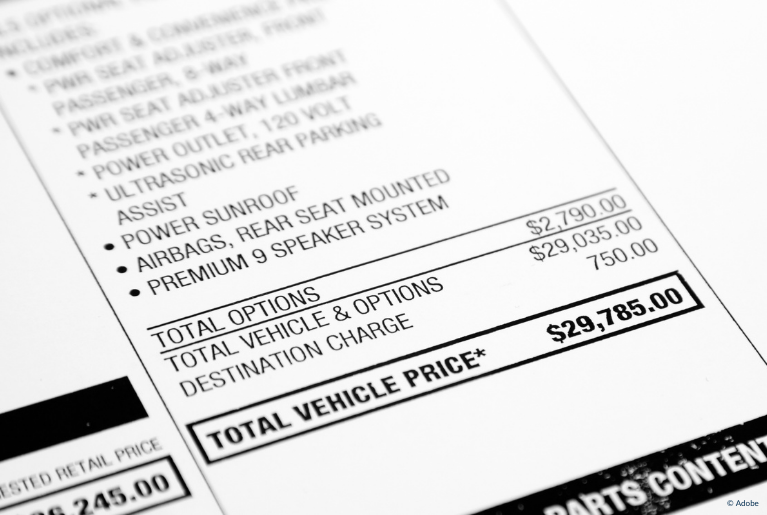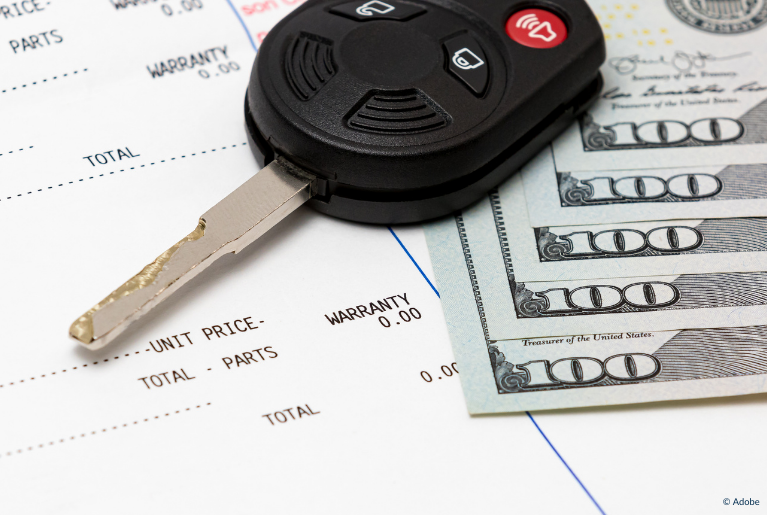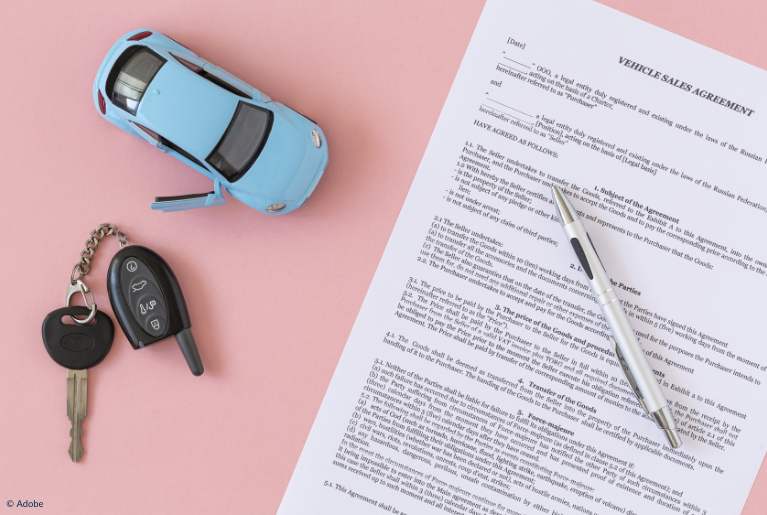Once you have decided which car you want to purchase, it’s time to negotiate the price with the salesperson at the dealership. Make sure that you have all of the information you need on your car, such as vehicle reports, window sticker information, standard car model features and applicable warranties.
Keep all of this information on hand when you discuss your purchase with the salesperson. While you do, keep in mind these car purchasing traps. Falling for any one of these could result in bumping up the overall cost of your vehicle and accidentally waiving some of your consumer rights.
- AS-IS: One easy way to accidentally waive some protections is to purchase a vehicle “as-is.” This “as-is” status means you have no warranties to protect you. Make sure that the car you plan to buy is not being sold “as-is.” From there, you should look closely at what warranties the vehicle may come with.
- ACCESSORIES: You should also avoid getting additional accessories that are not supplied by the vehicle’s manufacturer. Aftermarket or non-factory supplied accessories are often not covered by the auto manufacturer’s warranty. Whatever problems these accessories may cause in your vehicle may not ultimately be covered by the manufacturer’s warranty if you decide to take your car in for repairs.
- YO-YO FINANCING: This occurs when a prospective buyer takes the car home before the financing is approved by the lender. Later, the loan is declined by the bank. The dealership tells the prospective buyer to either return the vehicle or finance it under different terms – typically a higher interest rate, longer loan terms, and/or a bigger down payment. If you have a pre-approved loan from a bank or credit union before you went car-shopping, you won’t fall victim to yo-yo financing.
- DEALER MARKUP: You should always show up at the dealership with financing already in place, or you will likely be penalized by “dealer markup,” by which a dealership can legally raise your loan’s interest rate, secretly, by up to 2.5%, without informing you what rate you actually qualified for. When you outsource the rate-shopping process to a dealership, the dealer will solicit bids from various lenders. But his goal isn’t to get you the lowest rate; it is to find a lender that will authorize the highest commission to the dealership itself, even if this costs you more. If you bring in secured financing from your credit union or bank, you can give the dealer the opportunity to beat your existing rate. But if you rely on a dealer to arrange financing, you will be flying blind, and dealer markup will often add $1,000-$2,000 to the overall cost of your loan.
- GAP INSURANCE: Guaranteed Auto Protection (GAP) insurance is geared toward drivers who lease brand new vehicles and would have to pay off auto loans if their vehicles were stolen or totaled. Ordinarily, if their vehicle is totaled or stolen, they get a check for what a similar used car would be worth. GAP Insurance covers the discrepancy between that check and what vehicle was worth when brand-new. Drivers who put down large down payments, have short loan payoff periods, paid cash, owe less than your car is worth or bought vehicles that depreciate slowly will likely be perfectly fine without GAP insurance.
- SURFACE PROTECTION: Otherwise known as paint protection, this is often pushed onto consumers making purchases at dealerships and tends to be expensive. Most vehicles’ paint can be maintained through regular washing and waxing. If someone really does want paint protection, they’re better off buying it elsewhere for a cheaper price.
- EXTENDED SERVICE PLANS: These promise to cover certain items after the manufacturer’s warranty expires. However, they tend to be highly limited in what they cover and are often bought from third parties. A study by Consumer Reports found that 55% of people who bought an extended service contract never used it at all. It is a particularly bad idea to begin researching extended warranties the same day that you purchase the vehicle. If they are bought from third parties, they are not counted as warranties under the California Lemon Law.
Familiarize yourself with these traps, and be vigilant of anything your salesperson tries to convince you to buy. When it comes time to sign any contracts, carefully read over all of the paperwork. Read our next post in our Auto Buying Guide series to know what to watch out for when going through these documents.
Lemon Law Help by Knight Law Group is an automotive lemon law firm that exclusively practices in California, with offices in Los Angeles, San Francisco, Sacramento and Orange County. If you are a California resident who purchased or leased a defective vehicle from a licensed dealership in California, we may be able to help you get rid of your potential lemon and recover significant cash compensation. Model year restrictions apply: 2020–Present vehicle models only.
However, we cannot help those who reside outside of California or purchased their vehicle outside of California unless they are active duty members of the Armed Forces, nor will we be able to refer them to a lemon law firm in their states.
To learn more about the California Lemon Law and your legal rights, visit our guide on the California Lemon Law for more information.















